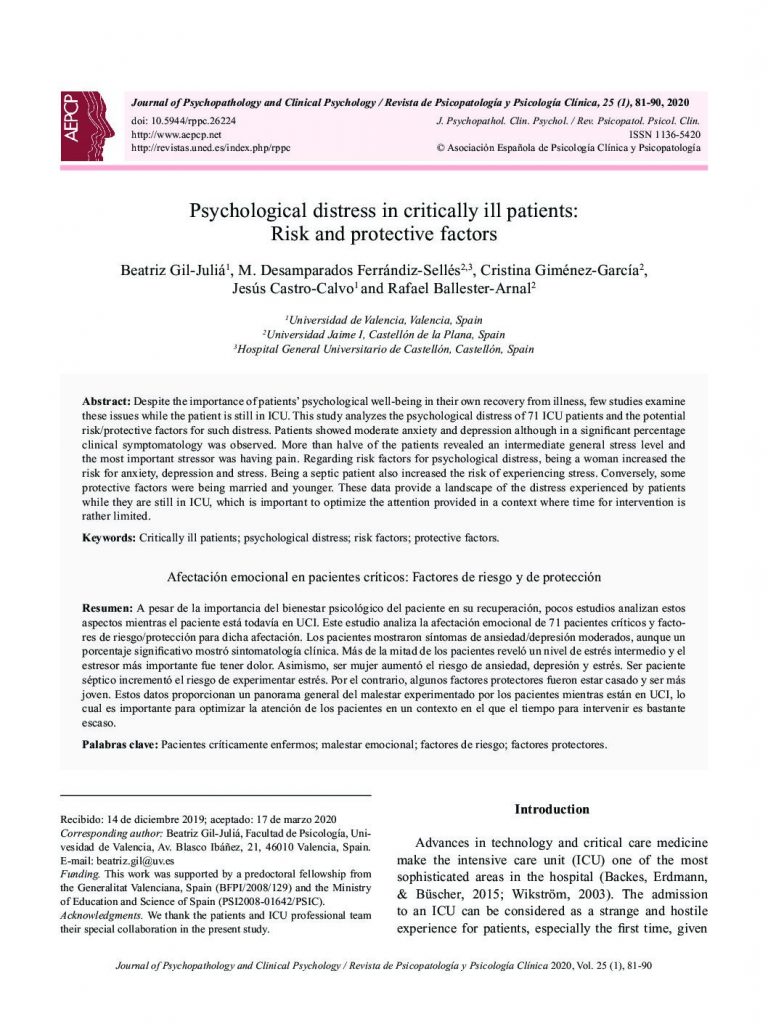Psychological distress in critically ill patients: Risk and protective factors

- Trastornos de atracción sexual hacia animales: Clasificación diagnóstica basada en una revisión sistemática
- Spanish version of the Adult Executive Functioning Inventory (ADEXI): Psychometric properties in adults with Autism Spectrum Disorders and Intellectual Disability
- Evidencias de validez y fiabilidad de la versión en español del Children’s Depression Inventory-Short en población peruana
- Factor structure of the Posttraumatic Growth Inventory in a Spanish sample of adult victims of interpersonal violence in childhood
- Decision making in adults with autism: The role of ecological executive dysfunctions
- Psychological distress in critically ill patients: Risk and protective factors
Despite the importance of patients’ psychological well-being in their own recovery from illness, few studies examine these issues while the patient is still in ICU. This study analyzes the psychological distress of 71 ICU patients and the potential risk/protective factors for such distress. Patients showed moderate anxiety and depression although in a significant percentage clinical symptomatology was observed. More than halve of the patients revealed an intermediate general stress level and the most important stressor was having pain. Regarding risk factors for psychological distress, being a woman increased the risk for anxiety, depression and stress. Being a septic patient also increased the risk of experiencing stress. Conversely, some protective factors were being married and younger. These data provide a landscape of the distress experienced by patients while they are still in ICU, which is important to optimize the attention provided in a context where time for intervention is rather limited.



